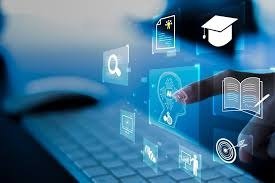The democratization of education has long been a goal for societies worldwide, yet disparities in access to quality learning resources persist. The emergence of the AI Homework Helper represents a significant step toward bridging these gaps, offering personalized academic support that was once available only to those with access to private tutoring or well-resourced schools.
These intelligent digital assistants are transforming the educational landscape by providing on-demand help with homework assignments across various subjects. Unlike traditional tutoring, which is often expensive and limited by geographical and time constraints, AI homework helpers are accessible 24/7 to any student with an internet connection and compatible device.
The technology behind these tools has advanced dramatically in recent years. Powered by sophisticated algorithms and machine learning capabilities, today’s AI homework helpers can understand natural language queries, recognize handwritten mathematics problems through image recognition, and provide step-by-step explanations tailored to a student’s demonstrated level of understanding.
What makes these tools particularly valuable is their ability to adapt to individual learning styles and needs. By analyzing patterns in a student’s responses and questions, AI homework helpers can identify specific areas of struggle and adjust their explanations accordingly. This level of personalization was previously impossible at scale in traditional educational settings.
Research indicates that this personalized approach can significantly improve learning outcomes. A 2024 study published by the Educational Technology Consortium found that students using AI homework helpers for mathematics showed a 32% improvement in problem-solving skills compared to control groups using traditional homework methods without AI assistance.
For students in underserved communities, AI homework helpers can help compensate for resource disparities. While these tools cannot replace well-trained teachers or address all systemic inequalities in education, they can provide supplementary support that might otherwise be unavailable. This democratization of access to personalized academic help represents a meaningful step toward educational equity.
The benefits extend beyond academic content knowledge. By providing immediate feedback and guidance, AI homework helpers help students develop metacognitive skills and self-directed learning habits. Students learn to identify their own knowledge gaps and seek appropriate help—valuable skills that transfer across subjects and contexts.
Teachers are finding that AI homework helpers can complement classroom instruction effectively. Rather than replacing the teacher’s role, these tools handle routine questions and basic explanations, allowing educators to focus on higher-order thinking skills and complex concepts during precious classroom time. Many teachers report being able to assign more challenging homework knowing students have support available when needed.
Parents also benefit from these technologies, particularly those who may not have the subject knowledge or time to help with increasingly complex homework assignments. AI homework helpers provide a reliable resource that can assist students when parents cannot, reducing family stress and conflicts around homework completion.
For students with learning differences or those who speak English as an additional language, AI homework helpers offer particular advantages. Many platforms can adjust explanation styles, provide multiple representations of concepts, and even offer content in multiple languages, accommodating diverse learning needs in ways traditional homework assignments cannot.
Despite these promising benefits, the integration of AI homework helpers into education presents several challenges that must be thoughtfully addressed. Data privacy concerns are paramount, as these systems collect substantial information about students’ learning patterns and academic performance. Schools and technology providers must establish robust protections for this sensitive information.
The digital divide represents another significant challenge. While AI homework helpers have the potential to democratize access to educational support, this potential can only be realized if all students have access to the necessary technology. Schools, policymakers, and technology companies must work together to ensure equitable access to devices and reliable internet connections.
There are also legitimate concerns about over-reliance on AI assistance. If not properly implemented, these tools could potentially enable academic dishonesty or discourage students from developing independent problem-solving skills. Educators must establish clear guidelines for appropriate use and design assignments that leverage AI support constructively.
Looking ahead, the capabilities of AI homework helpers continue to evolve rapidly. Emerging technologies like augmented reality promise to create immersive learning experiences that make abstract concepts tangible. Advances in natural language processing will make interactions with these systems increasingly conversational and intuitive. Machine learning improvements will enhance personalization even further.
For educational institutions, the key to successful integration lies in viewing AI homework helpers as complementary to human teaching rather than replacements for it. The most effective implementations will be those that thoughtfully consider how these tools can enhance proven educational practices while addressing potential pitfalls proactively.
As we navigate this technological transformation in education, maintaining focus on equity, ethics, and pedagogical soundness is essential. When implemented thoughtfully, AI homework helpers have the potential to make quality educational support available to all students, regardless of socioeconomic background or geographical location.
This democratization of access to personalized learning support represents not just a technological advancement but a significant step toward the long-held ideal of truly equitable education for all. By bridging gaps in access to academic help, AI homework helpers are helping to create a future where every student has the support they need to reach their full potential.

